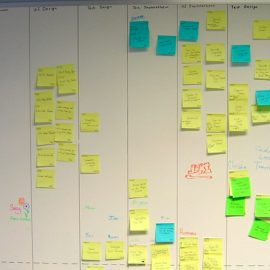
What makes teams consistently perform well year after year? How can leaders build and maintain teams that dominate their competition?
In his book Leading, Alex Ferguson reveals the principles of how to build a cohesive team that achieves sustained excellence. His advice demonstrates the critical elements of assembling and leading high-performing teams.
Keep reading for practical methods and leadership approaches that transform groups into extraordinary teams.
Building High-Performance Teams
Learning how to build a cohesive team is crucial for any organization’s success. This article explores proven strategies for assembling and managing teams, with a focus on skill integration, setting high standards, and objective performance assessment.
Integrating Diverse Skills and Experience
The most effective leaders know how to balance veteran wisdom with fresh energy. A well-rounded team maintains equilibrium between established expertise and growth opportunities, creating an environment where continuous evolution is possible through the connection between seasoned professionals and emerging talent.
Consider how football teams thrive: seasoned players provide stability while new members eagerly establish their roles, creating an environment of mutual learning and support. Manchester United’s success wasn’t just about the players – it extended to everyone from the head groundsman to healthcare professionals, all contributing to the team’s victories.
Nurturing New Talent
Building a sustainable organization requires a comprehensive approach to talent development. Take Malcolm Fidgeon, who spotted David Beckham’s potential at a young age and remained involved in his development through careful scouting and initial outreach. This exemplifies how a supportive environment can foster growth.
A global scouting network proves essential for identifying rising stars within any organization. Through proper nurturing and strategic integration, even team members who face initial challenges – like international athletes overcoming language barriers – can become valuable assets to the team.
Maintaining Excellence
Excellence in team management requires maintaining exceptional quality standards. While it’s important to acknowledge significant contributions, you must also address underperformance decisively. The development of junior leaders indicates an environment that promotes continuous improvement, ensuring the team consistently performs at its best.
Creating an environment that recognizes and celebrates exceptional performance builds unity and belonging among team members and staff. This means celebrating collective successes while acknowledging individual contributions that lead to team victories. Teams that share recognition, like those at Manchester United, create an atmosphere where excellence is both recognized and pursued.
Performance Assessment
Objective performance measurement is crucial. Design systems that promote transparency and fairness, with clear standards and goals that team members understand and work toward. Successful organizations ensure they evaluate their team members’ capabilities objectively to align with broader strategic objectives.
Management must take decisive action, including parting ways with individuals who don’t meet essential standards, to maintain a culture of excellence. Leaders need to maintain professional objectivity when separating from colleagues based on performance rather than past contributions or personal relationships.
Through thoughtful assembly of complementary skills, establishment and maintenance of high standards, and fair evaluation of outcomes, organizations can develop exceptional teams characterized by adaptability, unity, and readiness for sustained success.






